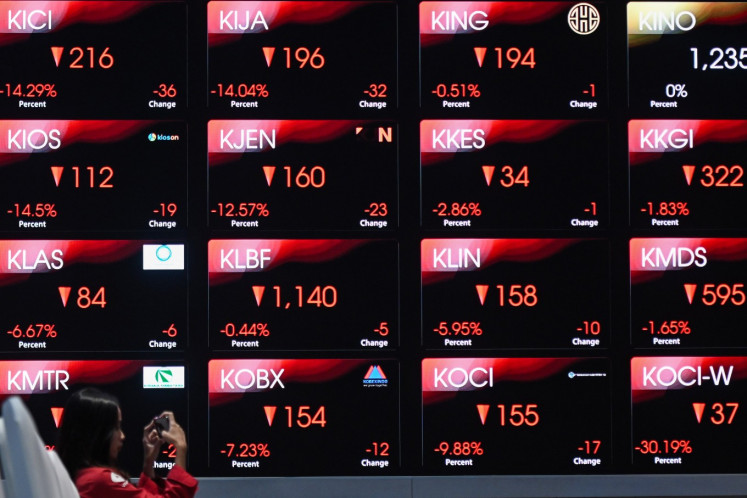Popular Reads
Top Results
Can't find what you're looking for?
View all search resultsPopular Reads
Top Results
Can't find what you're looking for?
View all search resultsYour trash not our treasure
Change text size
Gift Premium Articles
to Anyone
O
ne person’s trash is another person’s treasure, they say. So, is Germany, the United Kingdom and Australia’s trash Indonesia’s treasure?
For some Indonesians who get money from waste and for the recycling industry, perhaps it is indeed treasure. That is why the government agrees to let rich countries dump hundreds of thousands of metric tons of waste annually in Indonesia. But at what expense?
The Jakarta Post’s photo essays from a village in Mojokerto, East Java, published in April, showed the state of a village that finds money in waste. Not all of the trash can be recycled immediately. It was scattered all over the village.
Children scavenge on piles of trash to help their parents. Everyone’s front yard has unrecyclable waste on it and the roads are littered with trash as well. Someone put an Australian flag, upside down, on a mountain of trash. Environmental NGOs believe there are more such villages but people turn a blind eye.
Health risks from living so close to volumes of trash -- including metal -- are definitely present.
That is why most households in the world dump their trash somewhere. Out of sight, out of mind, becoming the health risk of some disadvantaged communities who have little choice.
Greenpeace estimates that Indonesia’s waste imports soared from 120,000 tons in 2017 to 420,000 tons last year. The UK exported the most to the archipelago, with 67,807 tons between January and November 2018, followed by Germany with 59,668 tons and Australia with 42,130 tons.
Last November the Trade Ministry asked the Environment and Forestry Ministry to allow the government to issue a permit for more plastic waste imports. The letter said Indonesia usually imported 110,000 tons of plastic waste, but the recycling industry needed to import up to 600,000 tons of plastic waste a year.
Fearing Jakarta’s planned plastic ban, recyclers say, give the plastic waste to us, we can handle it and we always need more.
However, environmental groups and researchers insist that reducing waste is better because recycling also has an environmental impact, including emissions from burning waste.
Indonesia clearly cannot manage its own waste. In 2015, the journal Science published a paper by a team of scientists led by Jenna Jambeck of the University of Georgia, which found that Indonesia’s mismanaged plastic waste reached some 3.22 million tons annually. Of this, between 480,000 and 1.29 million tons enter the oceans.
Add the hundreds of thousands of tons of waste from developed countries that should handle their own waste.
The international community agreed in 1992 that the movement of hazardous waste must be regulated to prevent what some have called “toxic colonialism”, or the dumping of hazardous waste from developed nations, mostly former colonists, on developing nations, the former colonies.
The agreement, called the Basel Convention, was revised recently to include plastic, requiring exporters to “obtain the consent of receiving countries before shipping most contaminated and mixed plastics waste that is difficult or even impossible to recycle.”
The world must reduce waste and handle the remains in their own backyard if possible. Our government must not just think about money and industry when agreeing to waste imports, but also the health and environmental hazards.









